Amplifiers
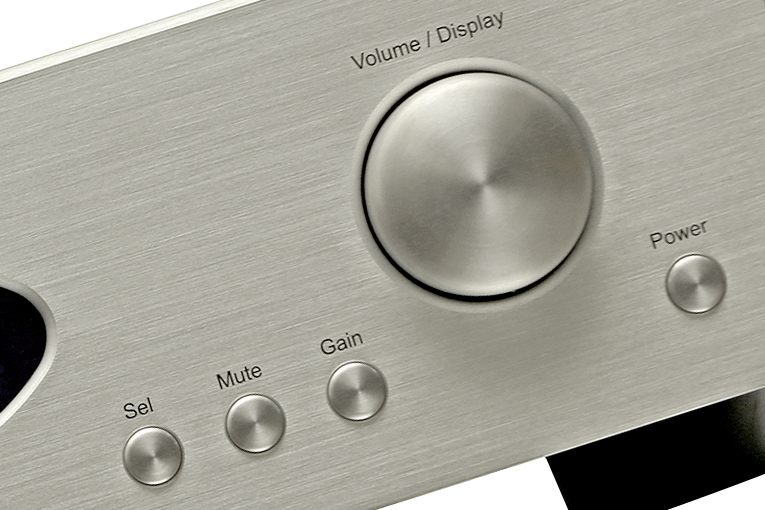
- Details
- Written by: S. Andrea Sundaram
Sound: 









Value: 









(Read about our ratings)
Measurements can be found by clicking this link.
Pennsylvania-based Rogue Audio has been producing tubed electronics for 20 years. Although they’ve long included headphone jacks on many of their products, Rogue is not oblivious to the demands of today’s ever-growing market of headphone enthusiasts. Many high-quality headphones can sound great when plugged directly into a smartphone, but their sound can often further benefit from connection to a dedicated headphone amplifier fed signals from high-quality source components. Some high-end headphones require greater power than a smartphone, or even the headphone amp in a typical audio component, can deliver. Rogue’s solution to these needs of the headphone aficionado is the RH-5 headphone amplifier-preamplifier ($2495 USD).
Read more: Rogue Audio RH-5 Headphone Amplifier-Preamplifier
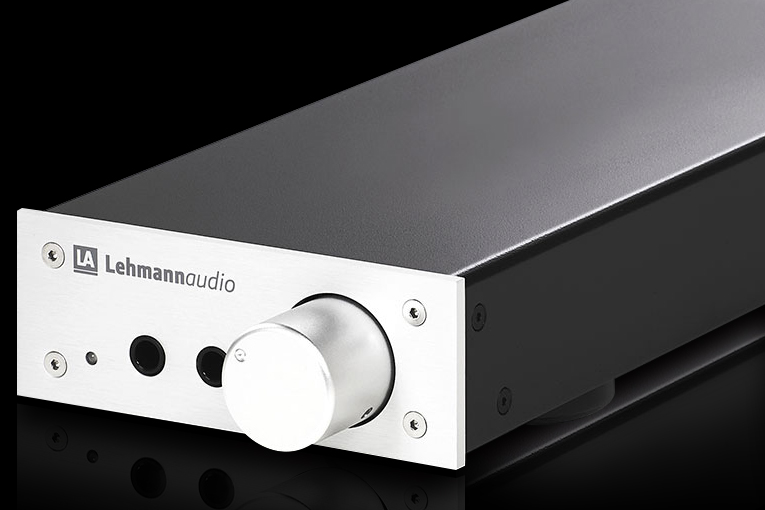
- Details
- Written by: Brent Butterworth
Sound: 









Value: 









(Read about our ratings)
Measurements can be found by clicking this link.
Many companies selling DAC-headphone amps snazz them up with every possible feature and a design that grabs attention. Lehmannaudio has a different approach. Its Linear USB II DAC-headphone amp ($2199 USD) is about as simple as it could be: basically one digital input, a stereo analog input, a volume knob, and two 1/4" unbalanced headphone outputs, all in a plainly designed rectangular chassis. I’m only mildly familiar with the company -- Lehmannaudio is a German brand that seems best known in Europe, and I’d previously encountered it only at Munich’s High End show -- but I gather from reading around a bit on the Internet that elegant simplicity is the company’s thing.
Read more: Lehmannaudio Linear USB II DAC-Headphone Amplifier
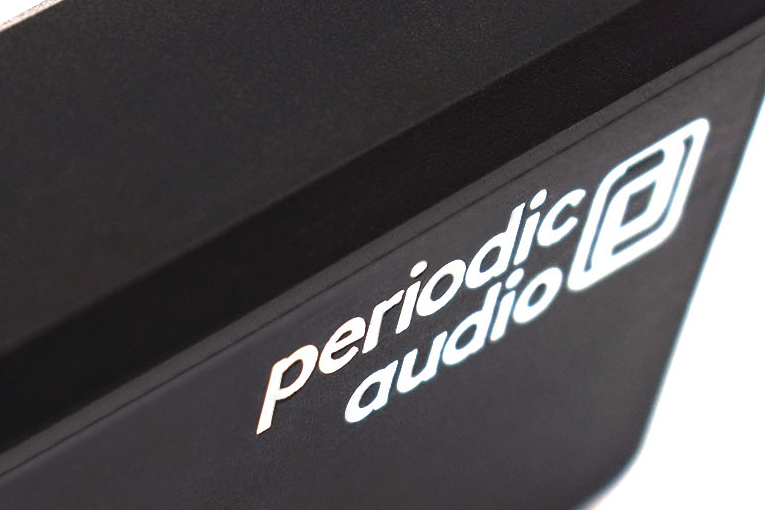
- Details
- Written by: Brent Butterworth
Sound: 









Value: 









(Read about our ratings)
Measurements can be found by clicking this link.
The Periodic Audio Nickel is the gutsiest audio product I’ve seen in many years. It’s a headphone amp that measures only 2” long, comes in a plastic enclosure, has no controls, no Bluetooth, no DAC . . . yet it costs $299 USD. I can’t find a directly comparable product, but the FiiO A3 amp has about as much rated power, plus volume, gain and bass-boost controls, and costs only $49 on Amazon, although it is about three times the Nickel’s size. The first time I encountered the Nickel at a CanJam headphone show, I had to wonder what kind of sonic juju this thing could have to justify its price.
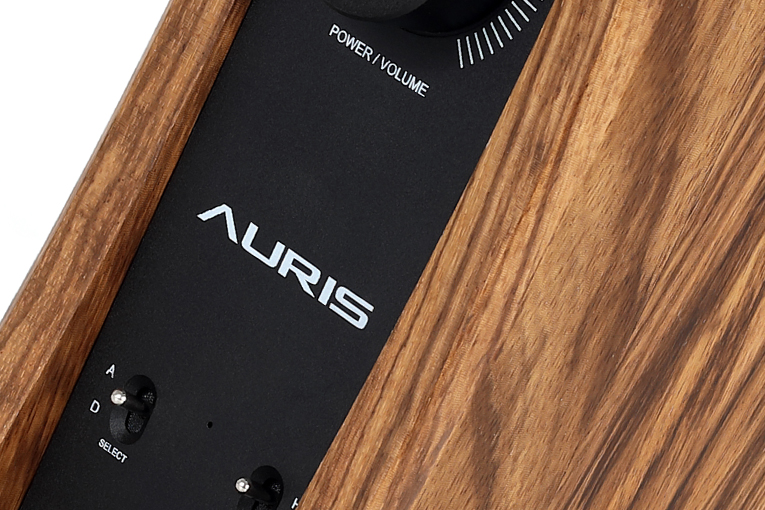
- Details
- Written by: Brent Butterworth
Sound: 









Value: 









(Read about our ratings)
Measurements can be found by clicking this link.
The Auris Audio Euterpe is, in some ways, the opposite of what I usually look for in audio gear. But that’s OK. Actually, it’s more than OK.
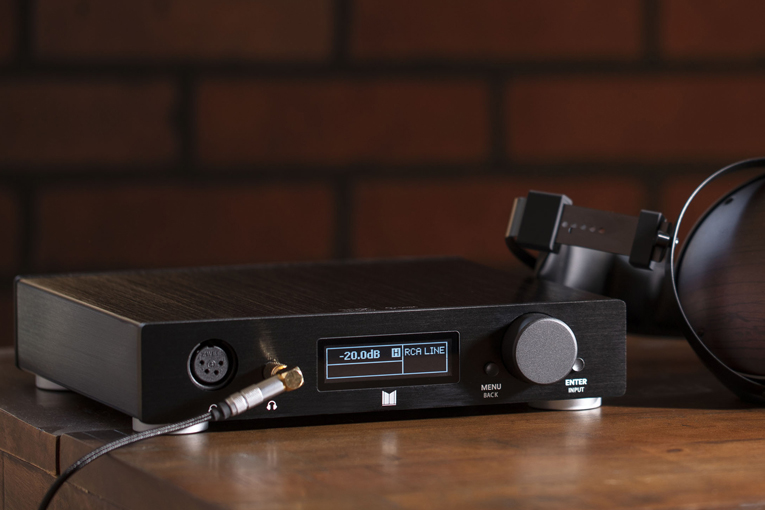
- Details
- Written by: Brent Butterworth
Sound: 









Value: 









(Read about our ratings)
Measurements can be found by clicking this link.
 The Monolith Liquid Platinum and Monolith THX 24459 are both headphone amps, and they both come from Monoprice, but otherwise, they couldn’t be more different. The tech behind the Liquid Platinum comes from artisanal amp designer Alex Cavalli, while the tech behind the Monolith 24459 comes from THX, a company known for its dedication to technical standards and measurements. The Liquid Platinum ($769.99 USD) is a plain ol’ amplifier, with nothing but a couple of tubes to distinguish it, while the Monolith THX 24459 ($479.99) is packed with technology, including a built-in DAC with digital inputs; a menu-driven control system with a front-panel display; and a digital signal processor (DSP) that allows parametric equalization, multiple filter modes, and Dirac Sensaround II headphone processing.
The Monolith Liquid Platinum and Monolith THX 24459 are both headphone amps, and they both come from Monoprice, but otherwise, they couldn’t be more different. The tech behind the Liquid Platinum comes from artisanal amp designer Alex Cavalli, while the tech behind the Monolith 24459 comes from THX, a company known for its dedication to technical standards and measurements. The Liquid Platinum ($769.99 USD) is a plain ol’ amplifier, with nothing but a couple of tubes to distinguish it, while the Monolith THX 24459 ($479.99) is packed with technology, including a built-in DAC with digital inputs; a menu-driven control system with a front-panel display; and a digital signal processor (DSP) that allows parametric equalization, multiple filter modes, and Dirac Sensaround II headphone processing.
Read more: Monoprice Monolith THX 24459 Desktop Balanced Headphone Amplifier and DAC
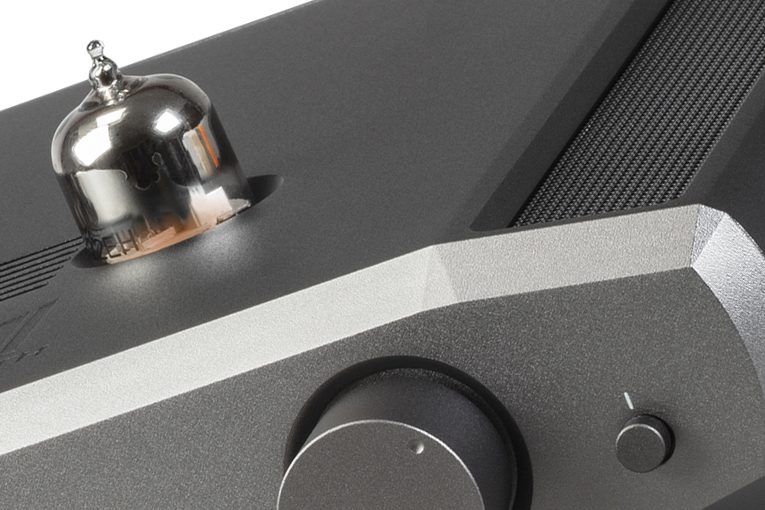
- Details
- Written by: Brent Butterworth
Sound: 









Value: 









(Read about our ratings)
Measurements can be found by clicking this link.
Alex Cavalli is to headphone amps what John Curl is to phono stages: not only the best-known designer of that type of product, but also the only one most audiophiles can readily name. Monoprice is to electronics companies what Amazon is to retailers: an often-resented competitor that consistently undercuts their price margins. When you combine the two, you get the Monoprice Monolith Liquid Platinum headphone amp by Alex Cavalli ($769.99 USD).
Read more: Monoprice Monolith Liquid Platinum Headphone Amplifier
- Schiit Audio Fulla 2 DAC-Headphone Amplifier
- iFi Audio xCAN Headphone Amplifier
- iFi Audio xDSD DAC-Headphone Amplifier
- Schiit Audio Jotunheim DAC-Headphone Amplifier
- AudioQuest DragonFly Red and Black USB DAC-Headphone Amplifiers
- Arcam MusicBoost DAC-Headphone Amp and Case for Apple iPhone 6/6s
- Moon by Simaudio Neo 230HAD DAC-Headphone Amplifier
- Oppo Digital HA-2 Headphone DAC-Amplifier
- Aurender Flow Headphone Amplifier-DAC
- Moon by Simaudio Neo 430HA Headphone Amplifier
SoundStage! Solo is part of
All contents available on this website are copyrighted by SoundStage!® and Schneider Publishing Inc., unless otherwise noted. All rights reserved.
This site was designed by Karen Fanas and the SoundStage! team.
To contact us, please e-mail info@soundstagenetwork.com




